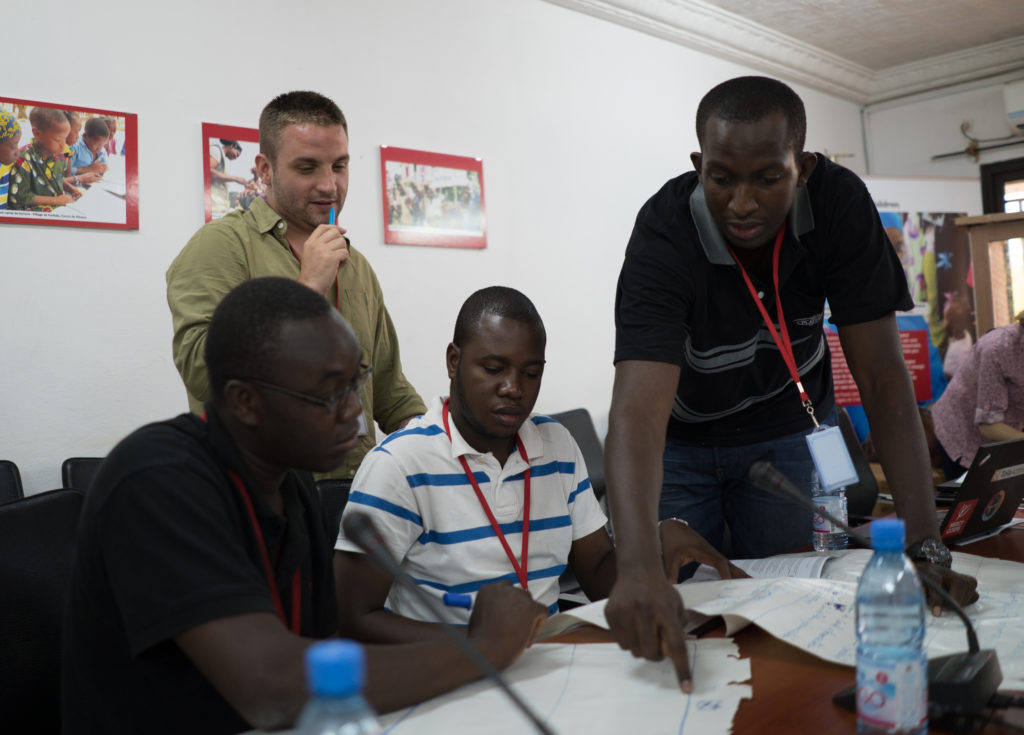Constituent feedback in Mali; challenges and opportunities

The West African state of Mali is in the grip of a humanitarian crisis fuelled by insecurity, creeping desertification and economic deterioration. Many aid agencies are engaged in mitigating the plight of the population. It is against this backdrop that a team from the Listen Learn Act (LLA) project, which is implemented by DanChurchAid, Ground Truth, and Save the Children Denmark in four countries, travelled to Mali in April to try and bring the people’s perspective into the way humanitarian programmes are run.
Funded by European Union Humanitarian Aid (ECHO), LLA is tracking how commitments to greater accountability and programme quality enshrined in the Core Humanitarian Standard (CHS) are playing out on the ground. The goal is to improve both programme quality and adherence to the CHS by taking account of feedback from people supposed to benefit. In addition, DCA, Save, and GT will build the capacity of humanitarian organizations to apply the Core Humanitarian Standard through trainings, on-the-job mentoring, e-learning, and by facilitating communities of practice and sharing data through humanitarian forums, project and organisation-specific social media.
In Mali the trio of LLA partners is working with in-country counterparts from Mercy Corps, Save the Children, CARE International and Norwegian Church Aid. The activities of the four partner organizations in Mali cover a wide spectrum of humanitarian and development aid, spanning food distribution, WASH services (Water, Sanitation and Hygiene), infrastructural and agricultural projects to micro-finance programs. Ground Truth’s methodology, using questions based on the commitments of the Core Humanitarian Standard, is being applied in this diverse range of programmes and contexts. Questions such as ‘Does the organization’s staff treat you with respect?’ and ‘To what extent does the organization’s assistance meet your needs?’ can be asked of a mother with three kids receiving food vouchers from CARE International as well as of a farmer being trained in irrigation techniques by Mercy Corps. Answers to these questions provide valuable information about the relevance of services and the quality of the relationship between service providers and receivers. This in turn helps aid agencies improve their services and meet the CHS commitments.
The security situation however, is a major challenge in Mali. Armed groups like al-Qa’ida in the Lands of Islamic Maghreb (AQIM) and al-Murabitoun have claimed responsibility for attacks and kidnappings. This makes it hard for international aid workers to move around the country. Normally our field trips are essential for beneficiary mapping, development of a sample strategy and testing questions directly with beneficiaries. So, for the first time, participating agencies conducted the question testing via telephone. While not as good as face-to-face, insight from the calls was better than expected and provided valuable information on how to formulate the questions in a way that reduces biases and maximizes respondents’ comprehension.
In addition to designing and testing the survey instruments, the LLA team engaged with senior managers in the counterpart organizations and talked through their expectations about the project. It was great to see that they were intent not just on listening but on acting on what they learn. This focus on closing the feedback loop is a positive indication of their willingness to improve programming. Ground Truth will begin data collection in June. Updates on the Mali programme – as well as on LLA projects in Nepal, Lebanon and Ethiopia – will follow.
